Graz guide 
Graz welcomes you with the iconic Clock Tower on the Schlossberg castle hill, which shows time in reverse – the big hand is the hour, the small hand is the minute. You can get to the top on foot, by cable car or by glass elevator in the rock, where the longest underground slide in the world is hidden (it is 175 meters long and 64 meters high). The historic center, listed as a UNESCO World Heritage Site, is complemented by monuments such as the Cathedral of St. Giles with the mausoleum of Ferdinand II.
Sights and monuments - Which famous monuments you can admire in Graz? For example Eggenberg Castle, the Clock Tower or the modern Kunsthouse.
Accommodation - Recommendations for different types of accommodation in Graz, from luxury accommodation in the city center to a cheap hostel near the train station. You will learn about both traditional boarding houses and very modern accommodation.
Food and drink - What is the most common thing to eat and drink in Graz? Which herbal lemonade comes from here and which famous delicacy can you buy in the local markets?
Practical advice - Several tips for public transport, including the cable car, or for trips around the city.
Celebrities – Which well-known conductors, writers or even monarchs come from Graz.
Weather - When is the best time to visit the city? When does it rain the most and what about the temperatures?
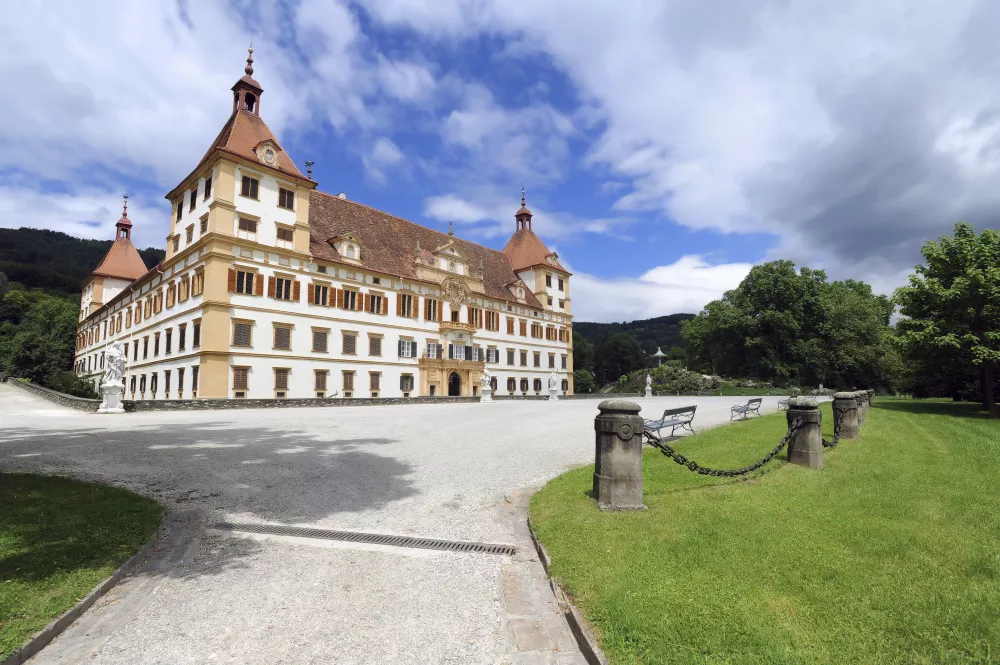
Graz, the second largest city in Austria, is located in the central part of the country, in the federal state of Styria, on the river Mur.
The city has a rich history dating back to the Middle Ages. Its historical core can be found on the UNESCO World Heritage List. On the other hand, Graz will also impress you with its very modern architecture thanks to the "Graz - European Capital of Culture in 2003" project.
The town is dominated by Schloss Eggenberg, one of the most important Baroque castles in Austria.
The city is home to eight universities, which contributes to its youthful atmosphere. You can choose to study anything from art at the Kunst Universität Graz to engineering at the Technische Universität Graz.
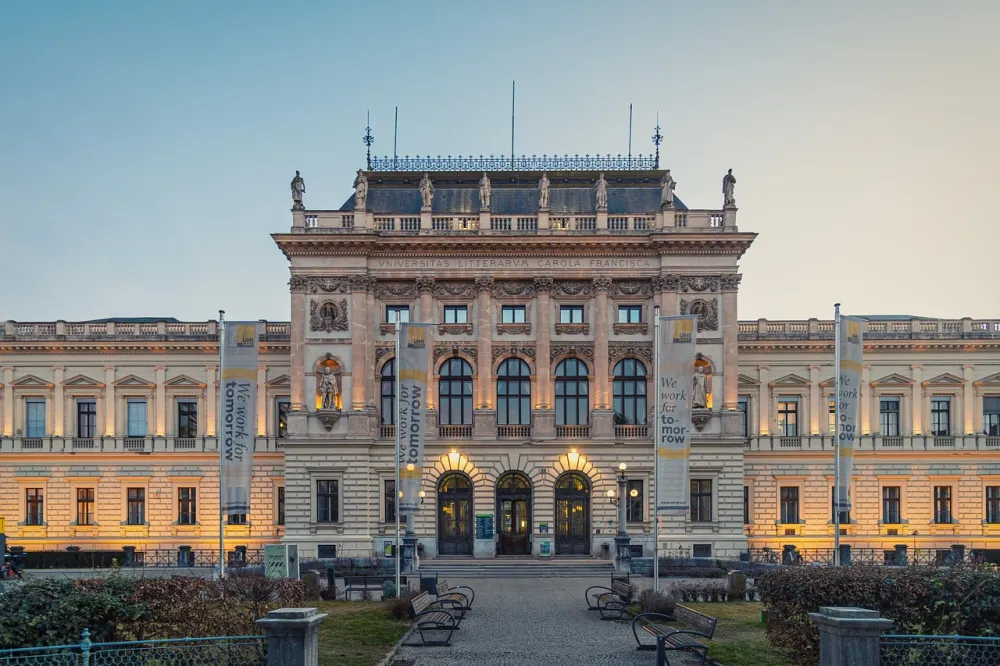
In Graz, they organize many cultural events and festivals during the year, for example the Graz Film Festival, La Strada Graz Kulturfest or Jazz Sommer.
The city offers a rich selection of restaurants, cafes and markets where you can taste traditional Austrian food and specialties.
The picturesque surroundings of Graz offer varied options for hiking and cycling, especially along the river Mur.
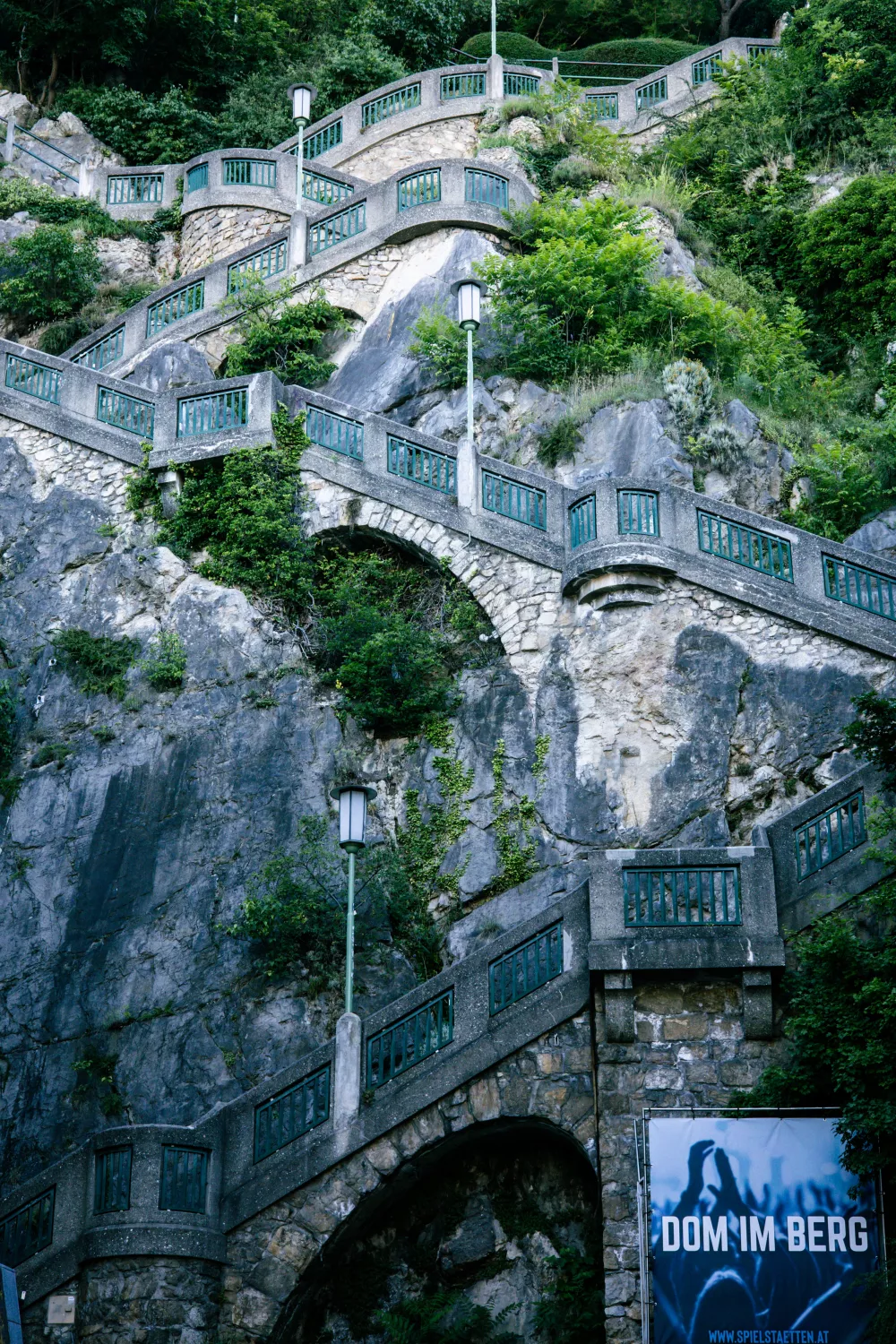
Landmarks and monuments
Eggenberg Castle – a well-known baroque castle built in the 17th century. In 2010, it was included in the UNESCO World Heritage List. Here you can see beautifully decorated rooms and extensive gardens. The castle has exactly 365 windows, 31 rooms on each floor and 24 state rooms with 52 doors and a total of 60 windows - all symbolizing time, seasons, weeks, days and hours.
Address: Eggenberger Allee 90, Graz.
Graz Schlossberg (Schloßberg) - a historical complex with a rich history, built on a rock next to the river Mur. They entered it into the Guinness Book of Records as the hardest fortress to conquer. Today, the Clock Tower (Uhrturm) dominates here. During World War II, they built an extensive tunnel system 6.3 km long with 20 entrances inside the mountain, which served as an air raid shelter for up to 40,000 people.
Address: Schlossberg 1, Graz.
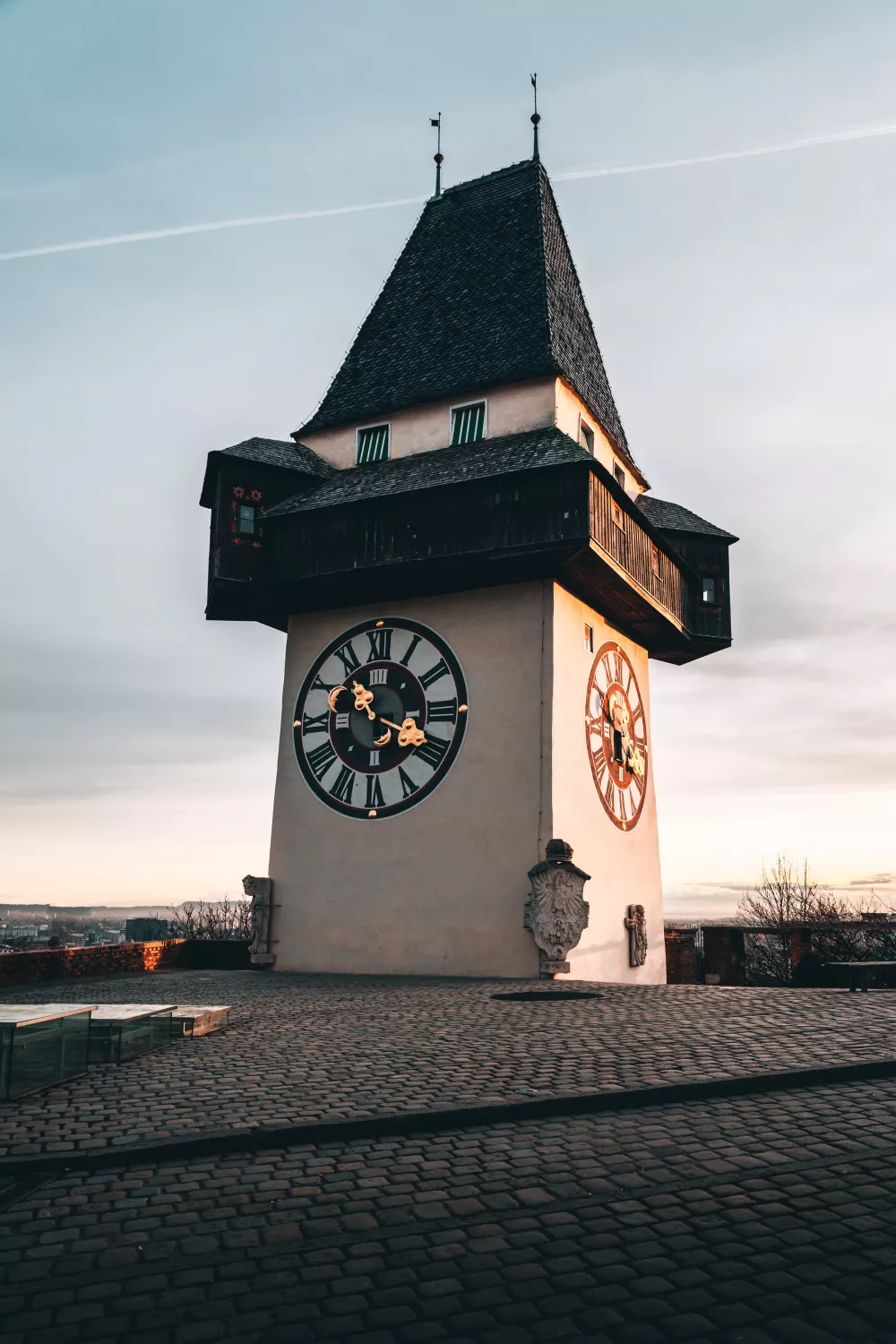
St. Giles Cathedral (Grazer Dom) - Gothic cathedral built in the 15th century. The bishop of the Styrian diocese resides here. The not-so-pretentious exterior contrasts with richly decorated interiors. Next to the cathedral you will find the interesting building Mausoleum, where Emperor Ferdinand II rests.
Address: Burggasse 3, Graz.
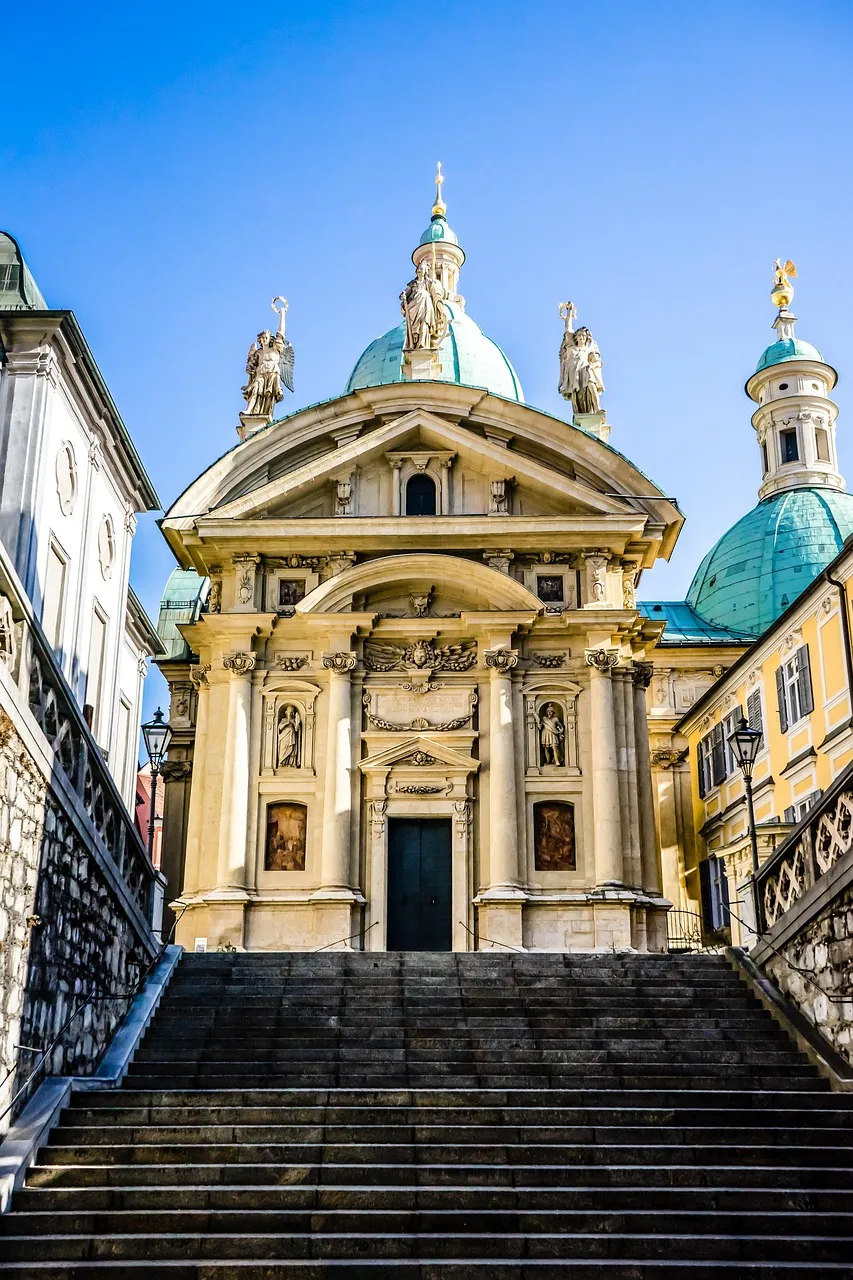
Landhaus – an elegant historical building built in the Renaissance style. It serves as the seat of the Styrian Parliament. It has a magnificent three-story arcaded courtyard. Free entry.
Address: Herrengasse 16, Graz.
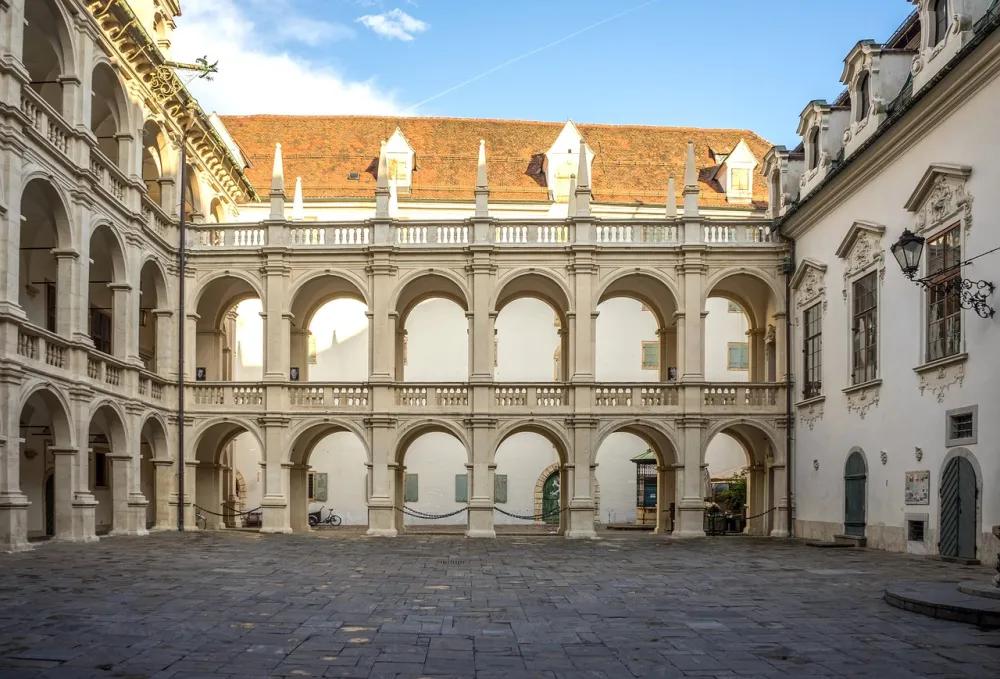
Opernhaus Graz - a beautiful theater built in the Italian Renaissance style, which hosts opera and theater performances. In 2001 it was declared "Opera House of the Year" in German-speaking countries.
Address: Kaiser-Josef-Platz 10, Graz.
Kunsthaus Graz - The Kunsthaus Graz building impresses with its unconventional architecture. It was built as part of the "European Capital of Culture 2003" project by architects Peter Cook and Colin Fournier. You can admire various forms of contemporary art here, including exhibitions, performances, and other cultural events. Due to its unusual shape and blue color, the building is nicknamed the "Friendly Alien". ;)
Address: Lendkai 1, Graz.
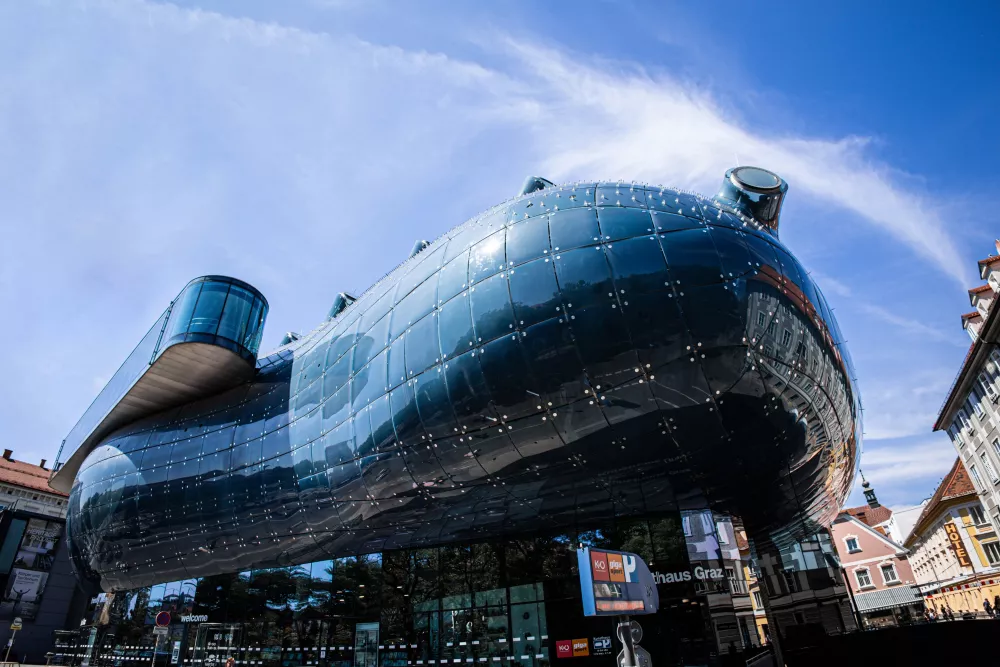
Murinsel - an artificial island in the Mur River. This unique structure was built, also as part of the project "Graz - European Capital of Culture in 2003", by architect Vito Acconci. The shape of the island resembles a shell or seashell with a length of 47 meters. Murinsel serves as a public space for cultural and social events - concerts, theater performances and other events are held here.
Address: Lendkai 19, Graz.
Accommodations
In Graz, you can choose from more than 400 different accommodation facilities. Here you will find luxurious 5* hotels, classic 3 and 4* hotels, guest houses, apartments and cheap hostels.
The interesting 4* boutique hotel Aiola Living Graz is located right in the city center, 150 m from the city hall. You can choose whether you want to stay in a room or in an apartment with a terrace.
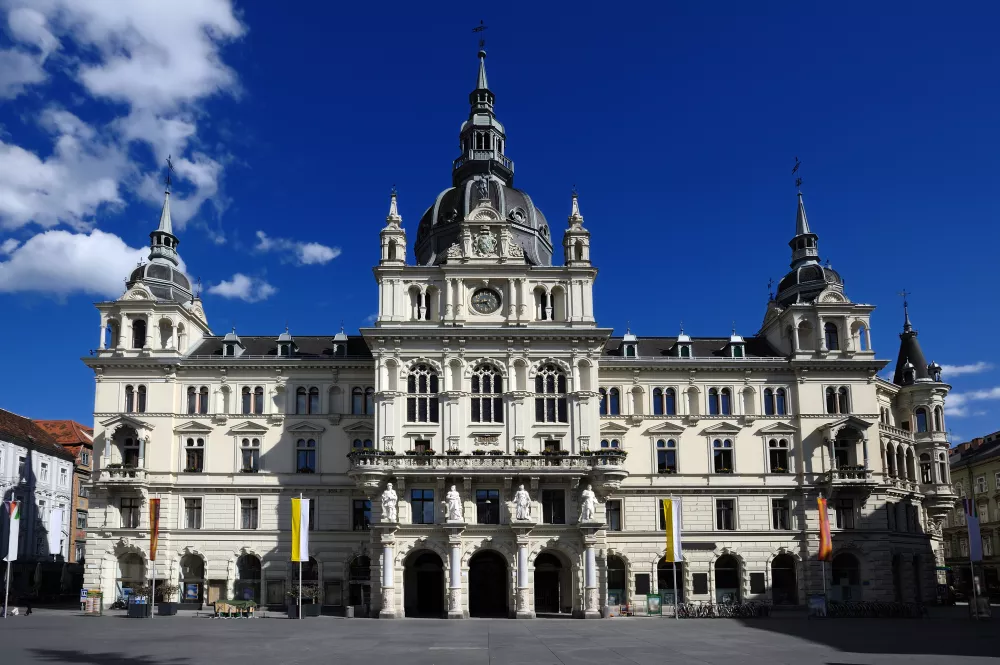
If you like modern architecture, you will definitely be interested in the aparthotel ARGOS Graz Serviced Apartments, kontaktlos mit Self Check-in. Spacious apartments with a fully equipped kitchen can be found in the city center, about 100 meters from the local opera house.
If you are looking for accommodation in a quiet part of town, check out the traditional Styrian 3* Hotel Stoffbauer. It is located 3 km from the city center and offers free private parking, a garden with a children's playground and a terrace. You can refresh yourself in the restaurant offering local specialties and beers.
If you're visiting Graz in the summer, you might like accommodation with a pool, such as Pension Scherwirt. This guest house is located about 6 km from the historic center of the city. You can park here for free in the private parking lot and relax in the garden or on the terrace.
Hostel a&o Graz Hauptbahnhof, which is next to the main train station, offers cheap accommodation for backpackers as well as for families with children. In addition to accommodation in a shared multi-bed room, it also offers guests family rooms with a private bathroom. You can reach the center on foot in 20 minutes.
For a complete offer of accommodation in Graz, we recommend using A-HOTEL.com. You can also use Booking.com offer for Graz.
Food and drink
Pumpkin oil – probably the best-known vegetable oil in Graz. When you come to the market, everywhere they sell local high quality pumpkin oil. It is made by hand from ripe roasted pumpkin seeds.

Backhendl – portioned, seasoned, coated and crispy fried chicken. It is served with a slice of lemon and usually with a cabbage salad.
Käferbohnensalat - red bean salad topped with pumpkin sauce.
You can also find traditional Austrian dishes such as tafelspitz, schnitzel or apple strudel.
Austrian wine - Austria produces quality wine, and Graz is no exception. You can taste various local wines such as Sauvignon Blanc, Grüner Veltliner and others.
Almdudler - a popular local soft drink. Almdudler contains an extract of 32 herbs, spring water, beet sugar and citric acid, no artificial additives.
Radler - a refreshing drink combining beer and lemonade, popular especially in the summer months.
Punch - on the other hand, in winter, hot punch with various flavors such as fruit, spices or rum is drunk a lot in Austria. Its different variants can be with or without alcohol.
Practical advice
You can walk around the whole city. Walk through the narrow streets in the historic center and admire the local architecture. If you want to rest, you can use the local trams or buses. Up to the Castle hill Schlossberg you can take the cable car with a slope of 60%. The height difference here is 109 meters.
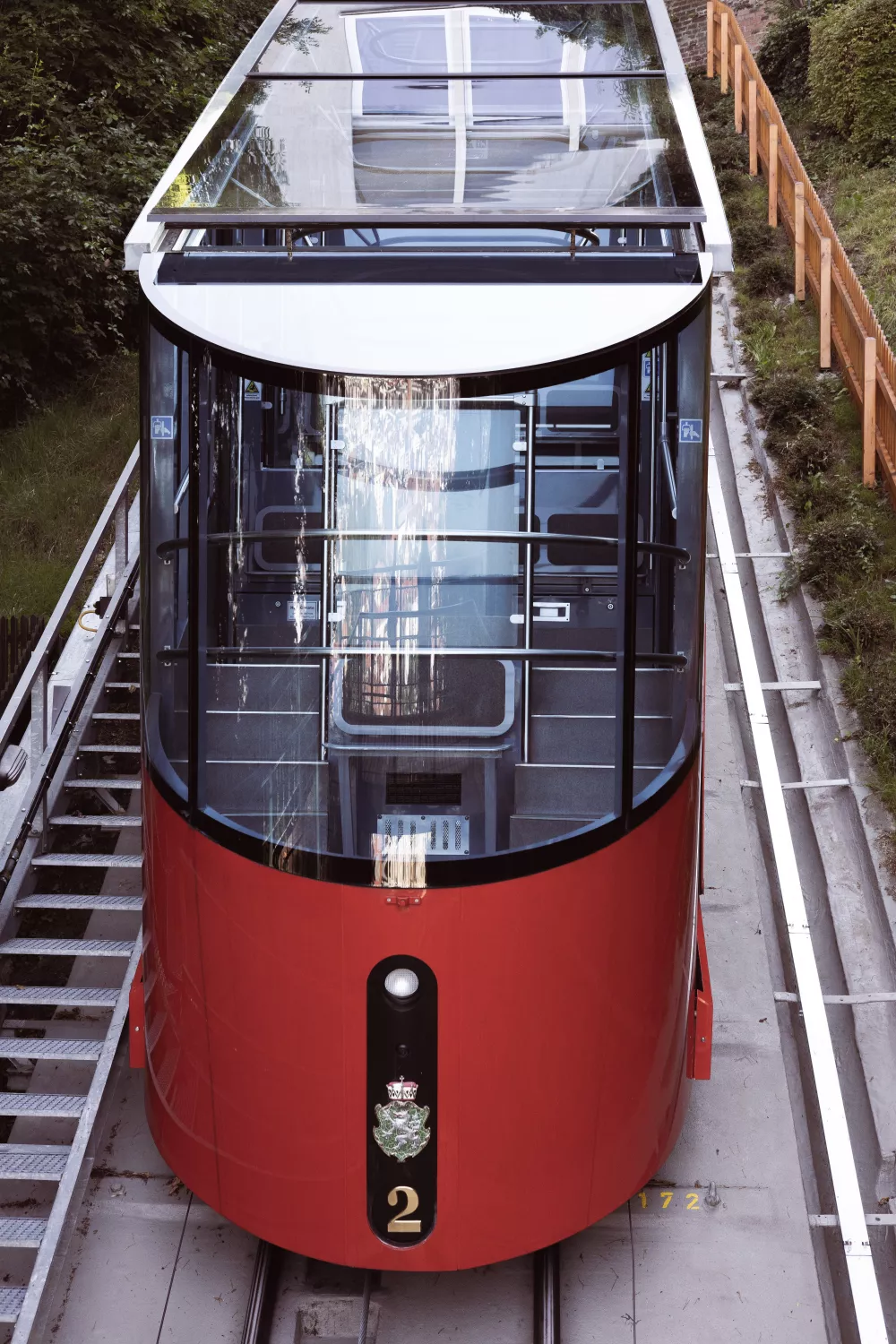
Learn more about the city's main sights, such as the Schlossberg overlooking the city or the Kunsthaus Graz.
Check the current cultural program and events taking place in local galleries, theaters and museums. The city has a rich cultural scene, and you may be lucky enough to find interesting exhibitions or performances. In winter, they host various balls, such as the Ball der Technik or the fun Tutenball
Try traditional Austrian dishes and local specialties. In summer, you can indulge in the Chocolate Festival Graz.
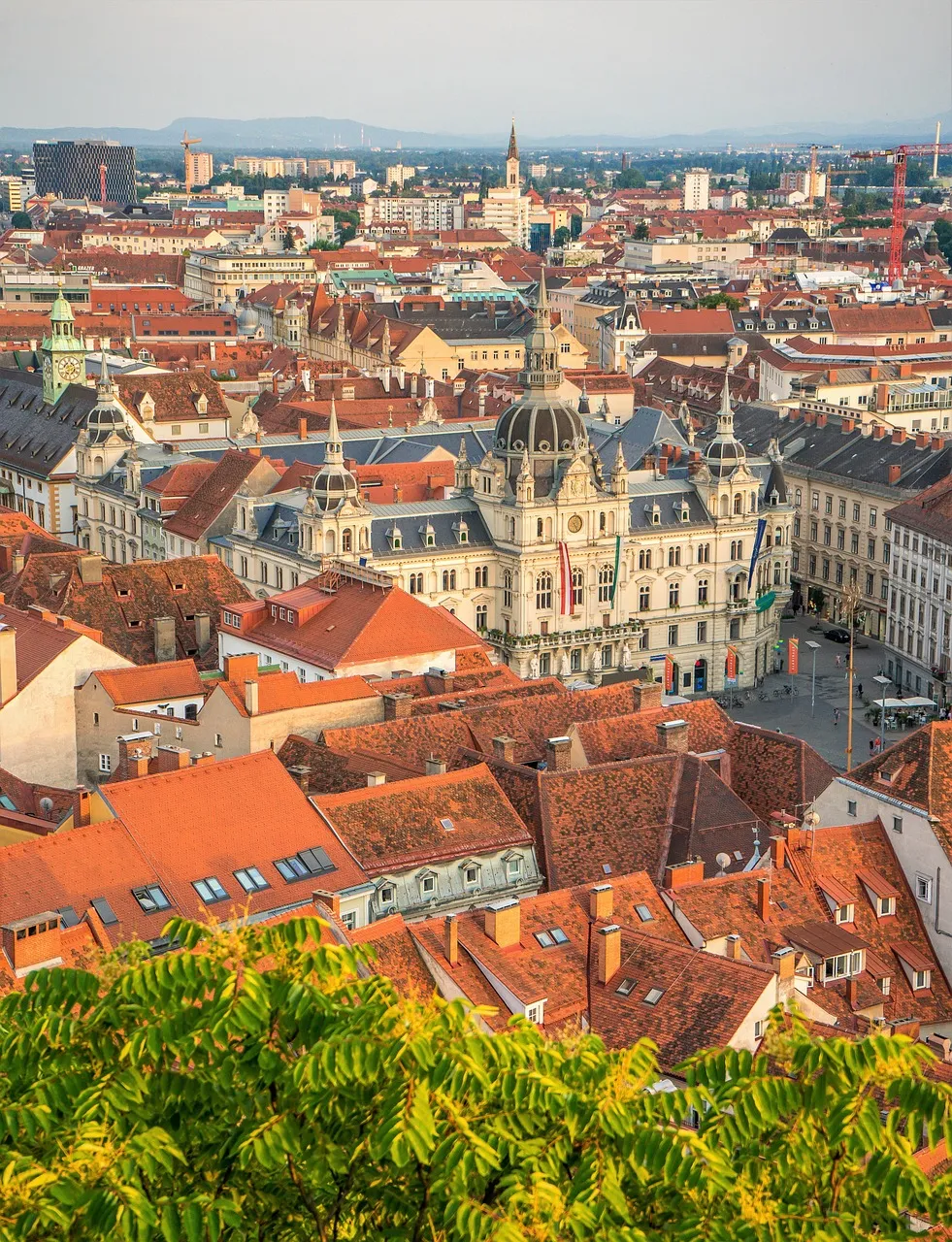
👍 Our tip: If you have more time in Graz, consider trips to the surrounding area - discover the wine trails in southern Austria or the nature parks in the area. You can explore the wine region Südsteiermark (Southern Styria) or, to the north, the Almenland Nature Park with Lake Teichalmsee.
Celebrities
Archduke Ferdinand II of Inner Austria (Ferdinand II. Styria) (1578 – 1637) - Archduke of Austria, Margrave of Styria and ruler of Styria, who had a significant influence on the development of Graz in the 16th century. As a patron of art and science, he contributed to the development of the city.
Ernst Habsburg-Lothringen (Ernst Habsburg-Lothringen) (1824 – 1899) – Archduke of Austria, head of the Austrian Imperial House of Habsburg-Lorraine and long-time president of the Austrian Red Cross. He was born in Graz.
Arnold Schwarzenegger (1947) - famous actor and bodybuilder, former governor of California. He was born in Thal near Graz.
Nikola Tesla (1856 – 1943) - famous inventor and electrical engineer Nikola Tesla studied at the Technical University of Graz early in his career.
Herbert von Karajan (1908 – 1989) - famous Austrian conductor who was born in Salzburg but spent part of his youth in Graz. Karajan is considered one of the greatest conductors of the 20th century.

Karl Böhm (1894 – 1981) – another important conductor of the 20th century. He was born in Graz, where he also began his musical studies at the conservatory.
Christine Nöstlinger (1936 – 2018) - Austrian writer and winner of many literary awards. She was born in Graz and became known mainly for her children's books.
Elfriede Jelinek (1946) - Austrian writer and winner of the Nobel Prize for Literature in 2004. She was born in Mürzzuschlag, not far from Graz.
Weather
Graz has a Central European continental climate with mild winters and warm summers. The climate is influenced by the inland geographical location and proximity to the Alps.
During the mild winters, temperatures often drop below freezing and it also often snows here. January temperatures average around 0°C to -5°C.
In spring, it gets warmer and there is more rain.
In summer, temperatures rise to 25-30 °C. It doesn't rain as much as in spring, but sometimes you can be surprised by a summer storm.
In autumn, it gets colder again and the drizzle increases.
Graz can occasionally be affected by winds from the Alps or from the south, but the winds are usually not very intense.